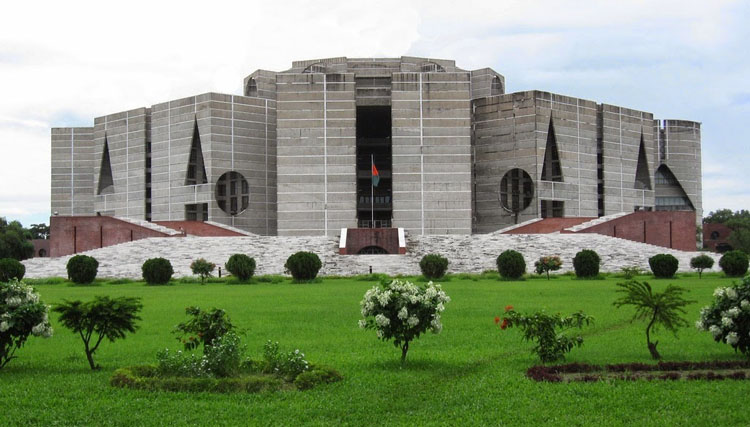
DHAKA, Sept 7, 2023 (BSS) - The draft of the Bangladesh Public Procurement Authority Act, which aims to infuse more dynamism into public procurement by transforming the Central Procurement Technical Unit (CPTU) into a full-fledged authority, is likely to be passed in the last session of the 11th Parliament.
The volume of e-GP is gradually increasing and that is why the foundation of a new institutional body is required to face the challenges of taking decisions in case of public procurement under the changing situation, said an official at the CPTU.
The official said the amount of the development budget of the government is increasing day by day and simultaneously, the amount of public procurement is also increasing.
In the fiscal year 2001-2002, the net expenditure for public procurement was Taka 19,000 crore, while it increased to an estimated Taka 2,21,500 crore in fiscal year 2022-2023.
So, CPTU, formed within the implementation of Monitoring and Evaluation Division (IMED) under the Planning Ministry in 2002, has no adequate workforce and infrastructure to oversee the legal and technical aspects of the public procurement process to a broad extent across the country, added the official.
On the other hand, public procurement has access to digital processes after inaugurating the Electronic Government Procurement (e-GP) web portal by the Prime Minister on June 2, 2011.
Talking to BSS on the high potentials of the Bill, Planning Minister MA Mannan said that once the law is enacted, the authority would liberalize the public procurement process while the participants would get more scope.
"The fairness and equity of the process will increase more while the public procurement process will be more transparent and expedited," he added.
Mannan also informed that the Bill is likely to be passed in the last JS session of the 11th parliament.
On July 5, 2023, Planning Minister M A Mannan placed the bill in the House with Speaker Dr Shirin Sharmin Chaudhury in the chair.
Placing the bill, the minister said the CPTU is playing a significant role in creating professionalism and increasing expertise in public procurement and that's why over 11,318 procuring entities from 1437 agencies are now conducting public procurement by using electronic government procurement (e-GP) system.
Bangladesh spends over $25 billion annually on public procurement, around 65 per cent of which is now done through the e-GP system, according to CPTU.
According to the draft of the Act, the upcoming authority's chairman of the board of directors would be the planning minister while its vice-chairman would be the secretary of the Implementation Monitoring and Evaluation Division (IMED).
The board would comprise representatives of the IMED, planning ministry, finance ministry, the ministry of law, justice and parliamentary affairs, and the chiefs of four procuring agencies considering their higher procurement requirements and complex nature of the goods and works.
Two board members would be the chiefs of procurement offices that got the highest allotment in the development budget for the previous financial year. All the representatives would be at least joint secretary level officials.
From the private sector, two board members would be included considering their three-year experience in public procurement or extensive knowledge in procurement law and rules.
The chief executive officer of the BPPA will be a member of the board with additional secretary status.
The tenure of the board of directors will be a maximum of three-years and the government can increase or cut the size of the board when needed.
The board will form policy and a legal framework for procurement activities and regulations to run the BPPA properly.
The BPPA will have to make a yearly report on all procurement activities and submit it to the government with recommendations on how to improve efficiency in this regard, the draft law says.
The authority will also form, update and maintain a list of people who are debarred from public procurement activities. The list will be available for reading among the mass people.
However, the BPPA's prime responsibility would be to run the e-GP system properly while preserving its related data.
The World Bank has been giving financial and technical support for improving public procurement management and expansion of the e-GP system since 2009.
In 2021, the agreed International Development Assistance of $40 million of the World Bank was intended to support the scaling up of e-GP coverage to 100 per cent.
The Central Procurement Technical Unit (CPTU) of the planning ministry was mainly responsible for implementing the e-GP project.
However, the CPTU's capacity has been limited because of its legal structure, a lack of autonomy in decision making, and limited staffing.
So, assimilating the CPTU with the BPPA with enhanced authority and autonomy would help take care of the e-GP project.
The e-GP system is saving time and money. It is also generating revenue for the government.
In 2022, some very important features were added to e-GP system. Such features are International Competitive Tender (ICT), Electronic Contract Management System (e-CMS), e-Audit Module, Automated Challan (A-Challan), Direct Procurement Method, Electronic project management information system (e-PMIS), Sustainable Public Procurement Policy, Many procurement information now at fingertips of citizens, International recognition.